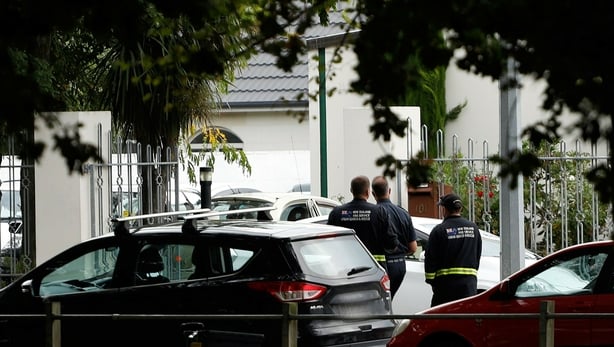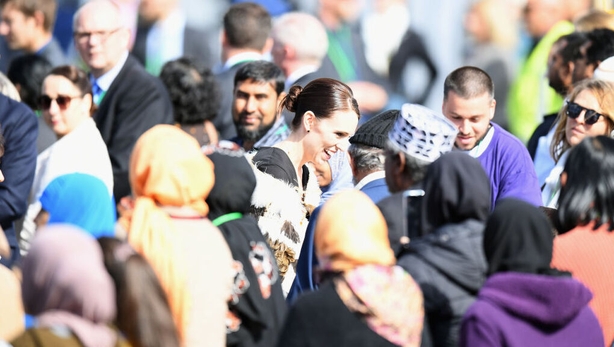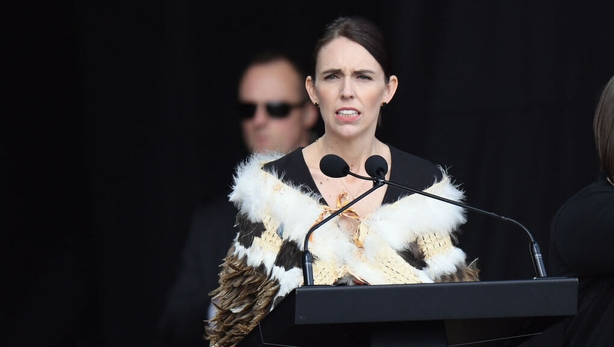Friday lunchtime, the 15th of March. As Muslims across New Zealand were answering their call to prayer, a lone gunman stole into the Al Noor Mosque in Christchurch and shot dead 41 worshippers.
Less than ten minutes later, he had killed a further seven people at the nearby Linwood Islamic Centre. When those who were fatally injured succumbed to their wounds, the death toll had climbed to 51. Dozens more had been injured.
It was the country's worst peace-time massacre.

"The city was just stunned and in shock... it happens around the world, and it breaks your heart... but you don't expect it to happen on your doorstep."
Fiona Deehan is in her kitchen, remembering that awful day. A resident of Christchurch for over a decade, her accent sounds like she left her native Cork yesterday. That day, Fiona had been working in the city council offices downtown when news of a shooting started filtering through, and "of course, people were getting online and checking the news sites".
Then "before we knew it" Fiona's building was put on lockdown, and would stay that way for the rest of the afternoon. The problem for Fiona was that her three-year-old daughter, Cara, was also caught in a lockdown.
Police had responded rapidly to the news of the massacre, and within 20 minutes of the first shot being fired, had detained the gunman. But it turned out this news was cause for more anxiety for Fiona.
"The suspected shooter had been apprehended at Strickland Street...our daughter's pre-school was on that street," she recounts. It would later be revealed that the gunman, heavily armed, was intercepted on his way to a third location, apparently hell bent on continuing his killing spree.
We need your consent to load this rte-player contentWe use rte-player to manage extra content that can set cookies on your device and collect data about your activity. Please review their details and accept them to load the content.Manage Preferences
How did Fiona feel, discovering that her child was in the vicinity of a man believed to have committed mass murder only moments before?
"Oh, I'm almost physically feeling those feelings again, y'know? The colour drains from your face, but at the same time you're feeling, 'Oh my god! I feel really hot'... absolute fear. Not knowing where on the street this was happening. Was she in danger? Was she ok? We knew the pre-school was in lockdown, we had texts... It was very, very frightening."
Fiona thought about contacting the school, but suspected that they would have little light to shed on the situation.
"We know the pre-school has no windows out onto the street. They may not even know any more themselves. There was no point in making a call to them. It was just a case of waiting it out."
The afternoon dragged on, with Fiona still confined to the city council offices, unable to make contact with her daughter. Hours passed, and then finally staff were given the all clear. The lockdown on the pre-school was also lifted.
"As soon as we were out of lockdown I called my husband James, I was able to say to him, 'Can you try to get to her?'"
James had been working out of town that day, and was waiting for the signal to go and get Cara.
At around 6.30pm that evening, five hours after her office was locked down, Fiona finally began her walk back to her family. Arriving at home, James was there ahead of her.
"Cara had fallen asleep in the car on her way home...when I first saw her, she was sound asleep," her mum recounts. "She was none the wiser, thank god!", Fiona exclaims, laughing, clearly reliving the relief of that moment. (Cara has since celebrated her fourth birthday.)
We need your consent to load this rte-player contentWe use rte-player to manage extra content that can set cookies on your device and collect data about your activity. Please review their details and accept them to load the content.Manage Preferences
The violence did not stop with those who were shot, however. For 17 minutes, as he committed mass murder, the gun man live-streamed the death and devastation he was inflicting.
Over the next 24 hours, Facebook found and removed one and a half million copies of the gruesome video on its site. On YouTube, the video was uploaded again and again, a new copy being posted every second of every minute of the first 24 hours. Social media users were ambushed by the appalling scenes, witnessing the carnage before they could make sense of what auto-play, with its mathematical algorithms, had delivered to their screens. Among them was the Prime Minister of New Zealand, Jacinda Ardern, who was stunned by the images.


The traumatic and savage event has left an indelible mark on New Zealand, a society which consistently ranks among the safest in the world.
Its government immediately moved to ban the type of semiautomatic guns the killer used. Like Ireland, New Zealand is one of the few countries where police do not routinely carry fire arms. But that too is changing, as the aftershocks of the massacre continue to reverberate, with officers in some areas now being given weapons. The government has also green lit an investigative team which will be tasked with finding and prosecuting those who produce extremist online content.
An official investigation which aims to establish whether the attacks could have been prevented will submit its report in April, rather than before Christmas as had been originally intended. This is in part in response to concerns in the Muslim community that they were not being adequately consulted.
The trial of the man accused of the atrocity is due to begin in Christchurch next June.
Fiona says that Christchurch continues to be a great place to live, and in many ways is a lot like her native Cork. In 2011, the city was hit by a massive earthquake, and she is wary of narratives which focus only on the city's tragedies.
"People in Christchurch have heard the word 'resilience' for a long, long time...we are sick of being resilient, we want to take action and make change...and lead the difficult conversations about race and privilege, and change and resilience, and doing things differently".
Crucially, Fiona says that the city council has a multicultural strategy, and is "bringing citizens on board on how they are going to implement that."
We need your consent to load this rte-player contentWe use rte-player to manage extra content that can set cookies on your device and collect data about your activity. Please review their details and accept them to load the content.Manage Preferences

